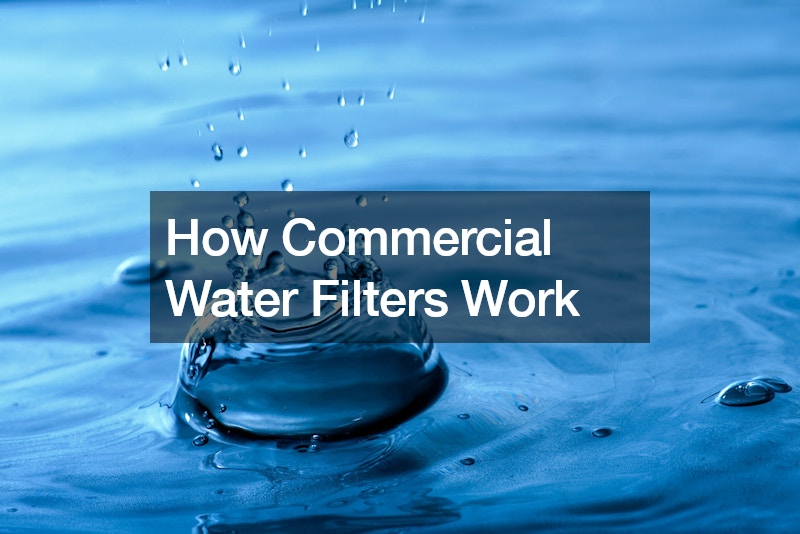How Commercial Water Filters Work

Are you curious about the process of commercial water filters and how they work? The YouTube video explores commercial or whole-house reverse osmosis. In addition, it explores how this water treatment solution can benefit you.
Understanding Commercial Water Treatment
There are different types of water filtration processes in commercial water filtration. For example, reverse osmosis, sediment filtration, activated carbon filtration, or UV disinfection.
Sediment filters block debris or dirt from filtering through the system.
Activated carbon filters absorb and trap contaminants. For example, chlorine, volatile organic compounds, pesticides, and unpleasant tastes and odors leave behind cleaner, better-tasting water. Reverse osmosis systems use a semipermeable membrane to remove dissolved solids, heavy metals, salts, and other contaminants from water. It forces these contaminants through the membrane under pressure, producing purified water for commercial use.
UV disinfection systems use ultraviolet light to destroy bacteria, viruses, and other microorganisms in water. It effectively sterilizes the water supply and prevents the spread of waterborne diseases. Many commercial water filters use a combination of filtration methods in multiple stages. It effectively removes a wide range of contaminants. Additionally, it provides high-quality, purified water for various applications.
Commercial filters use these methods and technologies to ensure high-quality water for commercial and industrial applications. These filters meet and exceed industry standards. They ensure compliance with health and safety regulations.
.







